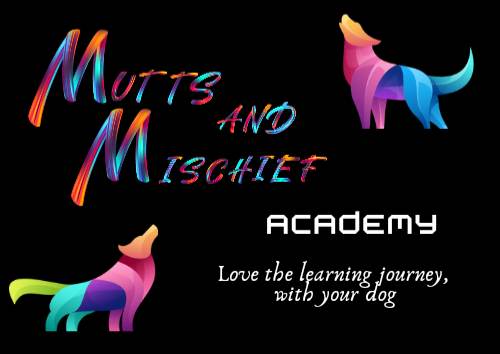 Changing attitudes blog People are finding it hard seeing holistic dog training and behaviour modification posts and are expressing this in their comments. It's OK to worry or feel like there is an ever growing shift in the dog training industry because there is. When I began on my own ten years ago I was met with a lot of amonisty from both other local dog trainers and guardians because I wouldn't do obedience and that's OK because I wanted dogs to have a happy and stable relationship with their guardians. People simply didn't understand, now holistic training and belief systems are becoming extremely popular very fast internationally and it's OK to feel worried. But it isn't personal to you as an individual, instead of negative comments, asking questions or reading and learning is much more productive. David Mech in 2008 who knows all too well what it's like changing attitudes and belief systems said "It takes around 20 years for people to change their belief systems." Below I'm going to explore why. Humans find it hard to change attitudes and beliefs because of a phenomenon known as the confirmation bias. This bias is the tendency to seek out, interpret, and remember information in a way that confirms one's pre-existing beliefs and attitudes. As a result, people often ignore new evidence that contradicts their beliefs and instead focus on information that confirms what they already believe. (1) In addition, attitudes and beliefs are often deeply ingrained and tied to a person's identity and values. Changing these beliefs can be difficult because it may require a person to reassess their sense of self and potentially risk feeling uncertain or uncomfortable. There are a number of reasons why humans may struggle to transition from aversive dog training methods to more holistic, positive methods. Firstly, aversive methods have been traditionally used for many years and may be seen as the "normal" way of training dogs. People may be unaware of the negative impacts of aversive training on dogs' mental health and may not have the education or resources to learn about more positive methods. Secondly, aversive methods may be more effective in the short term, as they can produce immediate results in behaviour modification. However, these methods often come at a cost to the dog's well-being and long-term behaviour. (2) Additionally, some people may have had bad experiences with positive reinforcement methods in the past, perhaps due to poor implementation or lack of knowledge on how to properly use the technique. This can make them hesitant to try it again. There may be societal beliefs that reinforce the use of aversive methods as the "only way" to train a dog, particularly in certain industries such as law enforcement or military dog training internationally. It's important to note that there is a growing body of research supporting the benefits of positive reinforcement training methods for dogs. These methods have been shown to lead to healthier, happier dogs that are more confident and well-behaved. Resources such as books, videos, and trainers that focus on positive reinforcement training should be encouraged to help humans transition to more holistic methods. (3) In recent years, there has been a growing trend towards positive reinforcement-based training techniques, as opposed to aversive methods that use physical punishment or intimidation to shape behaviour. Holistic dog training focuses on building a positive relationship between the dog and its guardian, utilising a range of non-aversive methods such as reward-based training, clicker training, and other forms of positive reinforcement. Some benefits of holistic dog training include: -Improved communication between guardian and dog -Stronger bond and deeper, more meaningful relationship -Improved behaviour and communication without resorting to physical punishment -Less stress and anxiety for both the dog and the guardian - A better understanding of dogs needs, communications, health and welfare - A much better understanding of dogs emotions and how to help dogs through their emotions and not suppressing them - Understanding dogs are a different species expressing their behaviours naturally the same as any other animal and so much more. In order to implement a holistic approach to dog training, it is important to understand the principles of positive reinforcement and to use positive reinforcement-based techniques consistently. This includes using treats and praise to reward behaviour, and redirecting unwanted behaviour rather than punishing it. It may also be helpful to seek out a professional dog trainer or behaviourist who specialises in positive, holistic techniques to guide you through the training process and provide support and guidance along the way. I hope this information was helpful in exploring the shift towards holistic dog training! Let us know if you have any other questions or concerns. It can be daunting that there are so many changes occurring, but it's a good thing, dogs will be happier on a mass scale and so will guardians! References: Nickerson, R. S. (1998). Confirmation bias: A ubiquitous phenomenon in many guises. Review of General Psychology, 2(2), 175–220. https://doi.org/10.1037/1089-2680.2.2.175 Festinger, L. (1957). A theory of cognitive dissonance. Stanford University Press. Vieira de Castro, A.C. et al. (2020) Does training method matter? evidence for the negative impact of aversive-based methods on Companion Dog Welfare, PloS one. U.S. National Library of Medicine. Available at: https://www.ncbi.nlm.nih.gov/pmc/articles/PMC7743949/ (Accessed: April 15, 2023).
0 Comments
Leave a Reply. |
BlogFor Mutts & Mischief If you enjoy my blogs and
would like to support my work, you can support me by buying me a Coffee! Archives
July 2024
|
Or are you looking for support and would like to get to know us better?
If the answer is yes then click the image below to join my free facebook group. What is Mutts & Mischief Community?
So it is what it says on the tin! Its a community that is international of Clients and Colleagues with the most supportive and friendly people on the planet. Dog Trainers and Behaviourists from all over the world!
Why did I set up such a mammoth group?
I wanted to have a group exclusively for Clients. For support and to meet uo and build on friendships from Classes or One to Ones. I want Clients to see you are not alone with your Dog and the problem you maybe having that you are not the first and won't be the last! I wanted a safe place where Clients could trade stories good and bad in one place for free!
I also wanted a safe place for the Trainers and Behaviourists I mentor within Social Media Platforms.
Why do this for free?
Because when I say I offer an holistic service I really do. It isn't about the money it is about you and your dogs. You and your dogs are all that matter.
So I wanted to encourage people to do homework and build better quality relationships with their dogs. So 3 years ago I had a mad idea and set up the 100 days of dog training challenge. Once a day people would spend 5 minutes plus training their dog. Recording it and uploading their video onto the Community. Every participant recieved a Certificate.
What I didn't count on was how many Professionals wanted to join and how fast word would spread. So this year 2020 I set up a 366 days of dog training challenge.
We have Clients in America, Greece, Norway, Denmark and Spain. We have Trainers from Greece, Norway, Isle of Wight, America and many more Countries. As well as dog trainers and trainee behaviourists: I mentor all over the world.
So again yes this group is free. It is still primarily for clients and for people to get to know me but we also have the challenge running. Again for free. So if you want to join click the image below to be taken to the group directly. See you there!
So it is what it says on the tin! Its a community that is international of Clients and Colleagues with the most supportive and friendly people on the planet. Dog Trainers and Behaviourists from all over the world!
Why did I set up such a mammoth group?
I wanted to have a group exclusively for Clients. For support and to meet uo and build on friendships from Classes or One to Ones. I want Clients to see you are not alone with your Dog and the problem you maybe having that you are not the first and won't be the last! I wanted a safe place where Clients could trade stories good and bad in one place for free!
I also wanted a safe place for the Trainers and Behaviourists I mentor within Social Media Platforms.
Why do this for free?
Because when I say I offer an holistic service I really do. It isn't about the money it is about you and your dogs. You and your dogs are all that matter.
So I wanted to encourage people to do homework and build better quality relationships with their dogs. So 3 years ago I had a mad idea and set up the 100 days of dog training challenge. Once a day people would spend 5 minutes plus training their dog. Recording it and uploading their video onto the Community. Every participant recieved a Certificate.
What I didn't count on was how many Professionals wanted to join and how fast word would spread. So this year 2020 I set up a 366 days of dog training challenge.
We have Clients in America, Greece, Norway, Denmark and Spain. We have Trainers from Greece, Norway, Isle of Wight, America and many more Countries. As well as dog trainers and trainee behaviourists: I mentor all over the world.
So again yes this group is free. It is still primarily for clients and for people to get to know me but we also have the challenge running. Again for free. So if you want to join click the image below to be taken to the group directly. See you there!
Proudly powered by Weebly


